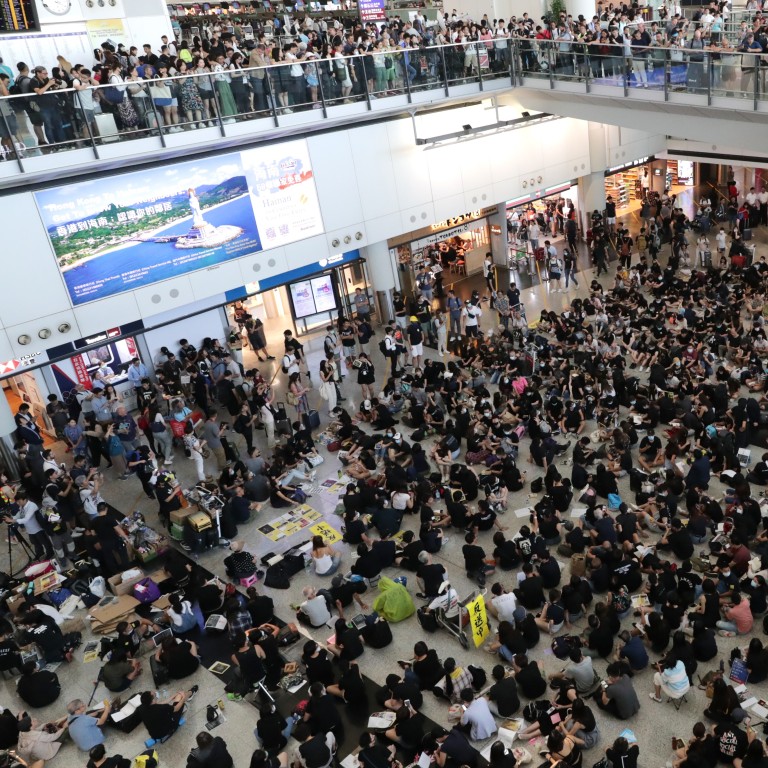
American Chamber of Commerce in China says smoothly functioning commerce in Hong Kong ‘fundamentally important’
- Nine weeks of protests, civil unrest have disrupted businesses in the city
- Smooth commerce in Hong Kong ‘validator’ of ‘one country, two systems’ concept, AmCham China says
An influential American business group in China said that a “smoothly functioning” system of commerce in Hong Kong was “fundamentally important” to the business interests of its members in the mainland.
The comments by the American Chamber of Commerce in China come as business in the city has faced disruptions over the past nine weeks as protests and civil unrest over a now-suspended extradition bill have blocked streets, shut down parts of the city’s transit system and forced the cancellation of hundreds of flights at Hong Kong’s airport.
The protests have expanded to larger grievances about the city’s leadership and how the police have responded to the demonstrations.
“It is without question that smoothly functioning Hong Kong commerce is fundamentally important to our members’ business interests and an important validator of the ‘one country, two systems’ approach,” Timothy Stratford, chairman of AmCham China, said. “Faithful implementation of this approach helps Hong Kong maintain its reputation as an attractive destination for foreign investment.”
Two months on, what do Hong Kong protesters really want?
One country, two systems is a concept where Hong Kong and Macau are part of China, but retain their economic and political systems.
Clashes between the police and groups of protesters have become increasingly violent, with police firing 800 rounds of tear gas on Monday alone. Violent confrontations also have taken place between demonstrators and gangs of men, some with suspected triad links, in recent weeks.
Hundreds of people joined in a mass sit-in at the airport on Friday as part of three days of demonstrations that are planned in the city.
The overall economic effect has been difficult to judge, but the retail, hospitality, airline and property sectors have all been affected. Australia, the United Kingdom and the United States also have all raised issued travel warnings about the city in recent days, citing the civil unrest.
Hundreds of protesters occupy Hong Kong airport amid increased security
On Friday night, the Hong Kong Association of Banks said the increasingly violent confrontations would affect “Hong Kong’s hard-earned position as an international financial centre.”
“The HKAB calls on members of the public to stop all violent acts and to resolve differences through dialogues,” the group said. “We also hope that the Hong Kong community will return to calm and peace soon.”
AmCham Hong Kong, a sister organisation, said that 37.1 per cent of its members surveyed in a straw poll in late July were “pessimistic” in the short-term over the city’s prospects and 34.4 per cent believe that the city’s “long-term prospects have been irreparably damaged”.
Business network urges ‘clear leadership’ after fresh Hong Kong clashes
The business group said the survey found that members had taken revenue hits from disruptions to supply chains and consumption and expressed longer term doubts over cancelled events and delayed investments. About 12 per cent of AmCham Hong Kong’s 1,400 members responded to the survey between July 23 and July 25.

